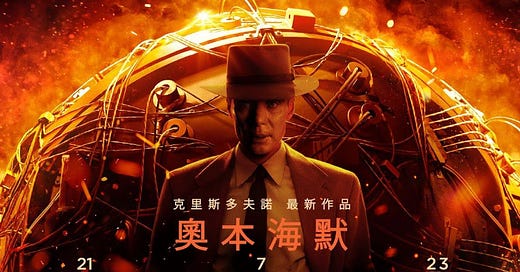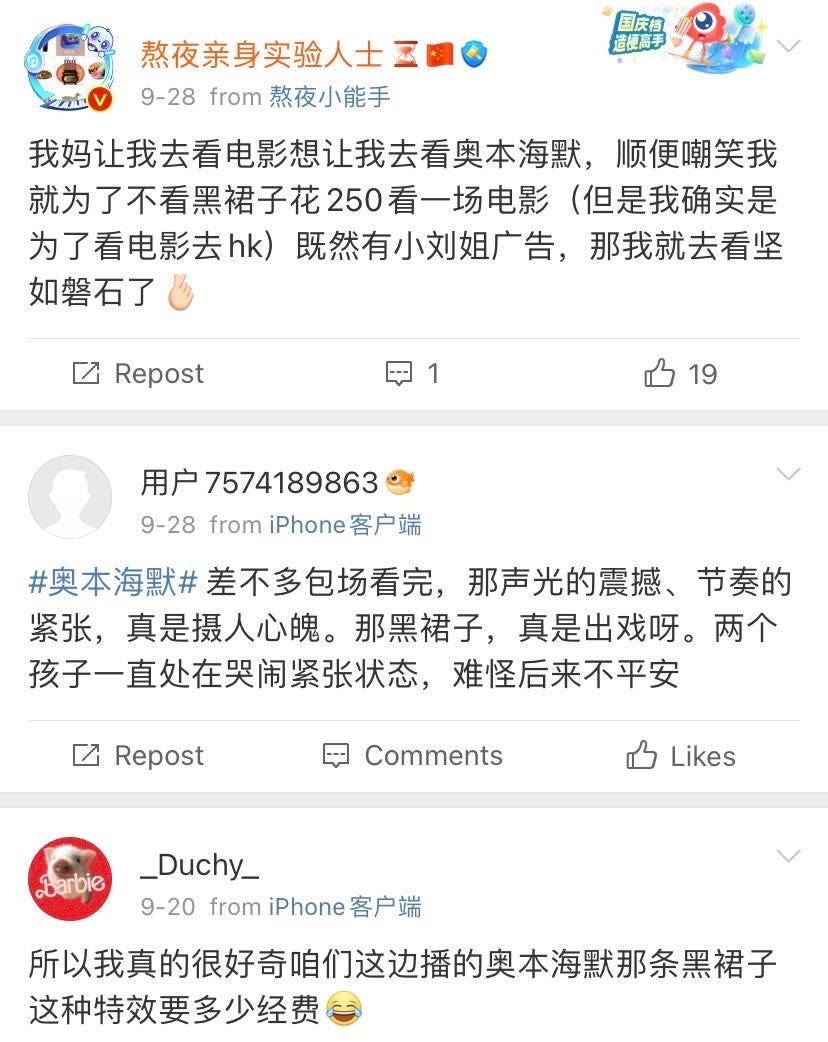Just Released: Oppenheimer in China
Some folks were surprised that Oppenheimer was shown in Chinese theatres. Actually, the film’s release in China makes perfect sense.
Oppenheimer is currently being shown in Chinese movie theaters. Outside of one slightly censored scene – a bit of nudity was covered up by a CGI dress that inexplicably appeared out of nowhere – the Chinese version was identical to the original.
Some of my non-Chinese friends were surprised that Oppenheimer was released in China. Isn’t China infamous for censorship? Yes. Isn’t the movie about politics? Of course. Aren’t political issues off limits in China? Not exactly.
A look at why Oppenheimer was released in China tells us quite a bit about the type of foreign content that’s allowed behind the Great Firewall.
Chinese netizens had a field day poking fun at the CGI black dress that suddenly appeared on Florence Pugh’s character in the post-sex cigarettes scene (screenshot from Weibo). To avoid copyright infringement, I’m not posting a picture of the black dress itself.
1: Oppenheimer makes the U.S. federal government (particularly the post-war, Red Scare-era government) look ridiculous.
Oppenheimer’s titular character becomes a victim of McCarthysim after making one of the most significant contributions to U.S. national security in the country’s history. The disconnect between Oppenheimer’s contributions to the U.S. and the humiliation he endures a few years later reinforces the belief, commonly held in China, that the American government’s disdain for communism defies rationality.
For example, in the late 1930s, Oppenheimer donated money through communist channels in order to oppose the fascists in the Spanish Civil War. Later, the prosecutors attacking Oppenheimer exposed these donations and used them to question his loyalty to the U.S. In doing so, these agents of the U.S. government seemed more obsessed with rooting out the shadow of communism than they were with opposing the Nazi-aligned regime in Spain.
After watching Oppenheimer, Chinese viewers can leave the theaters convinced that the U.S. government has no moral compass. That’s a shallow reading of the film’s plot – the movie is more about specific people than it is about the government as a whole – but it is aligned with the tenor of America-bashing in Chinese state-run media.
2: Oppenheimer isn’t about China.
Oppenheimer is about American politics, not China. It touches on communism, but neither the ideology nor the people who adhere to it are portrayed in a negative way. In fact, the film often presents communism as the antithesis of fascism, and the American communists portrayed in the film are thoughtful intellectuals who care deeply about the working class.
In China, political viewpoints which contradict the party line are suppressed, but politics overall aren’t necessarily off limits.
3: Oppenheimer doesn’t present the Japanese people as victims.
In China, World War II is often referred to as the War of Resistance Against Japanese Aggression. As I explained in a previous post, the mainstream historical memory in China vis-à-vis Japan is one of bitterness and pain. Thus, Chinese folks tend to be utterly dismissive of the notion that Japanese folks killed during the war were victims.
Oppenheimer doesn’t endorse this perspective but neither does it criticize the U.S.’s use of the atomic bomb. The film questions whether the hydrogen bomb needed to be developed, but the decision to use the atomic bombs on Japan is hardly contested. Quite the opposite: the film argues that the Japanese military was full of fanatics who would never surrender amidst conventional warfare, thereby suggesting that civilians who perished in Hiroshima and Nagasaki were necessary casualties on the road to peace.
Oppenheimer makes the American government look bad, offers a sympathetic view of communists, and doesn’t negate the orthodox Chinese perspective of World War II. What’s more, lots of Chinese viewers adore Cillian Murphy (don’t we all?). Of course it was released in China!





Thanks again, Dan. JMC